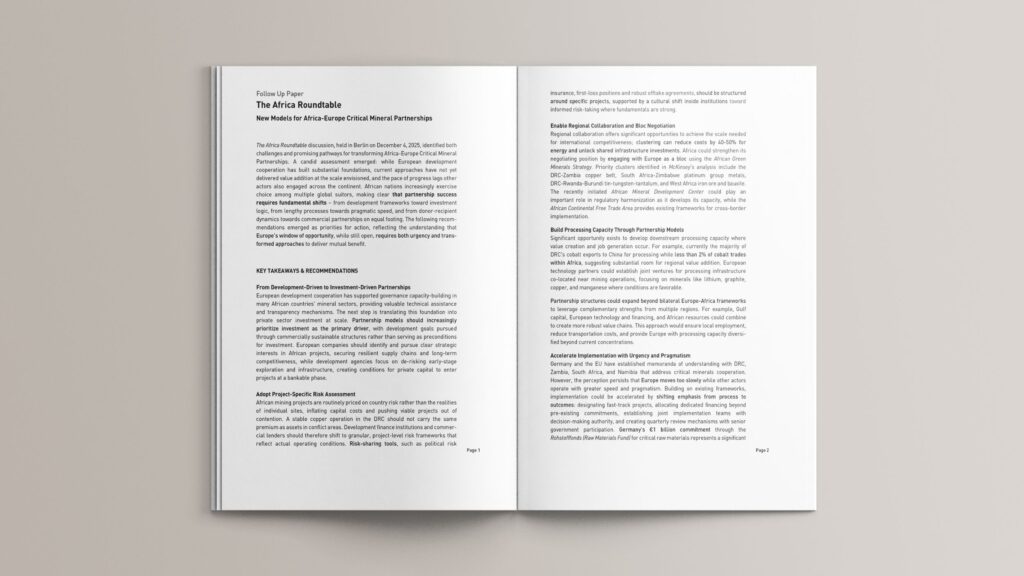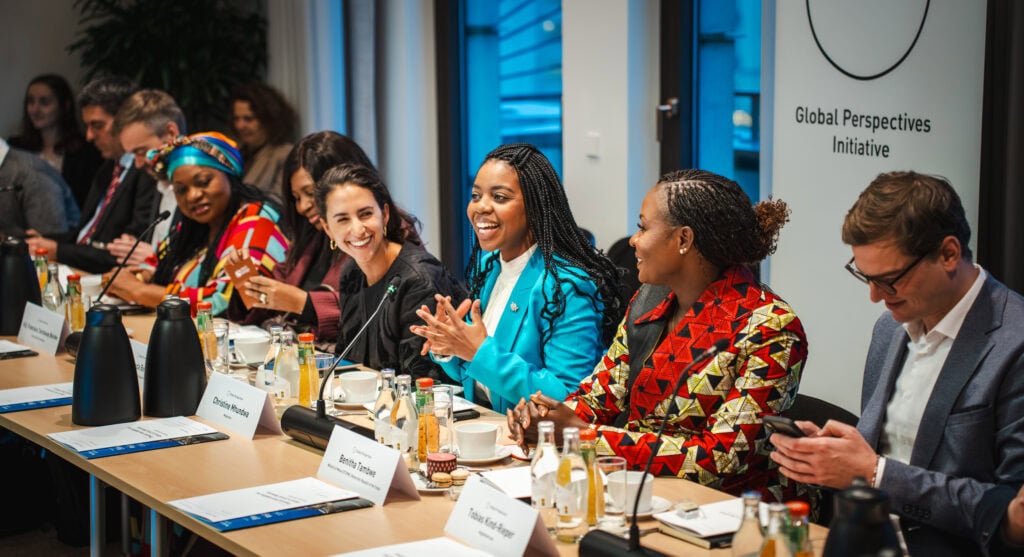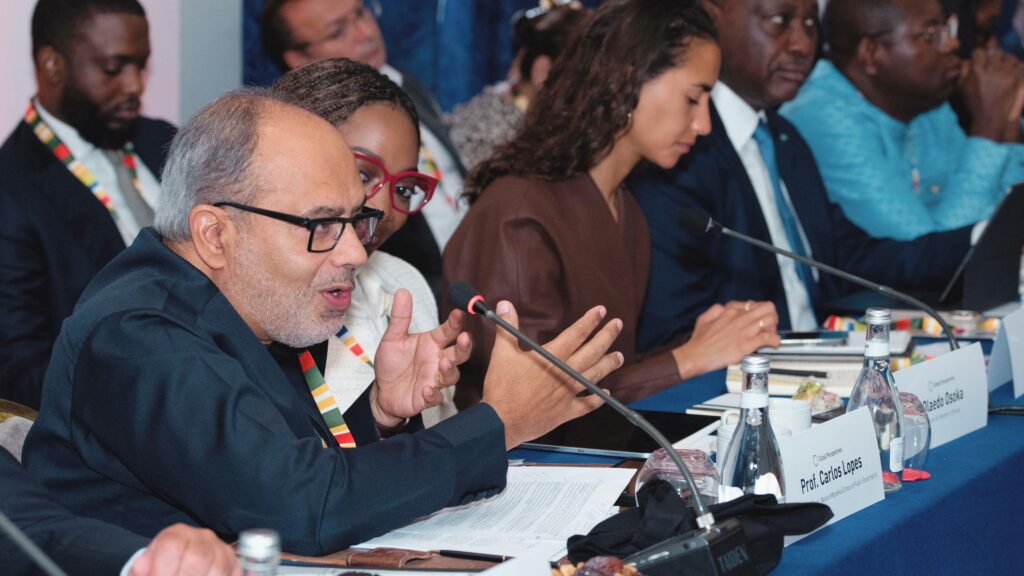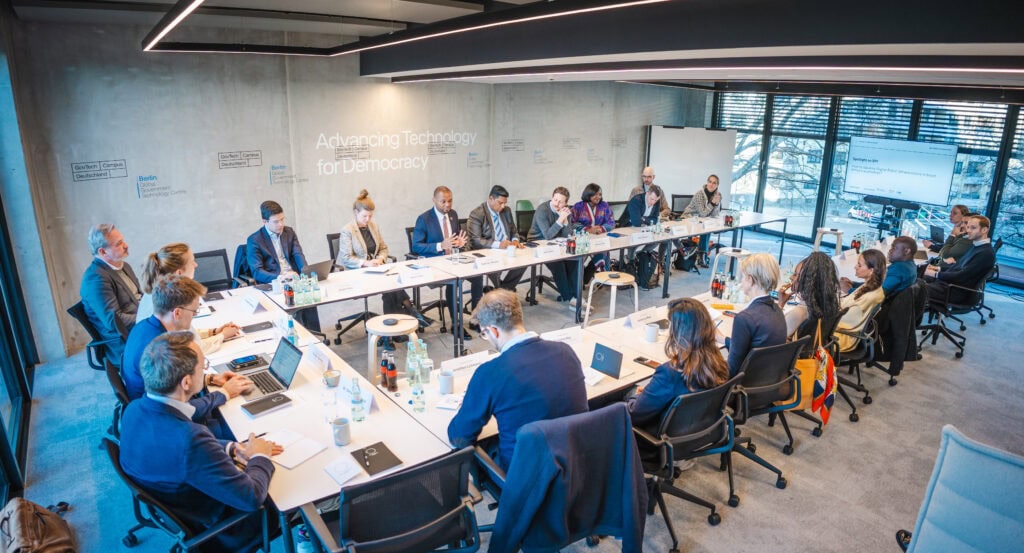Publications
The Africa Roundtable N°8
Action Recommendations
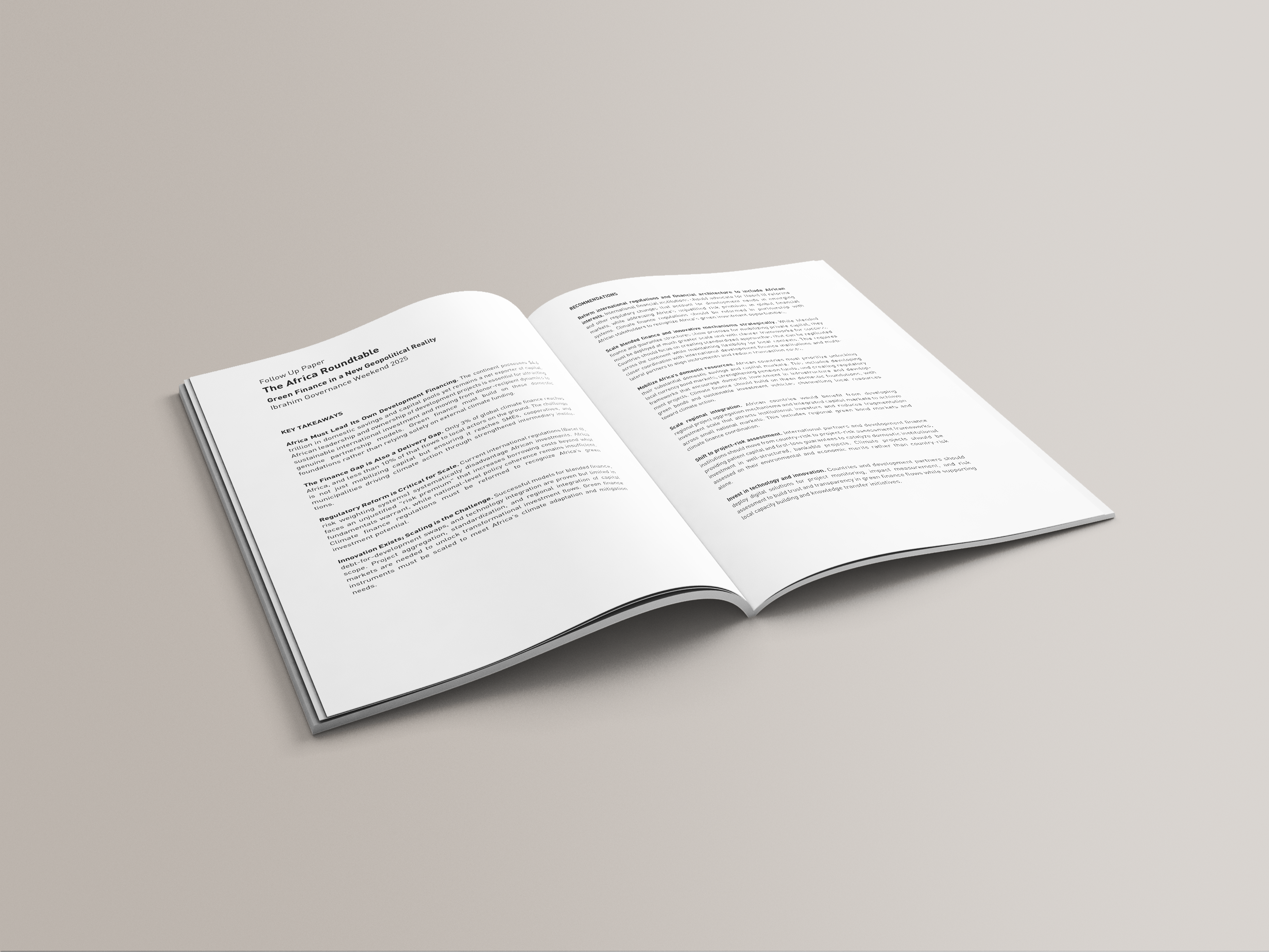
The Africa Roundtable in Marrakesh 2025
Green Finance in a New Geopolitical Reality
Publications: The Africa Roundtable N°8
June 25, 2025
Marrakesh
The 8th edition of The Africa Roundtable, held as part of the Ibrahim Governance Weekend 2025, convened policymakers and experts from Africa and Europe in Marrakesh. Participants explored how to accelerate green finance flows to Africa and how the continent can take a leading role in global climate action and sustainable development. As development aid declines and geopolitical dynamics shift, there’s growing urgency to develop new financing models that fully unlock Africa’s potential in renewable energy and climate solutions.
Building on previous discussions around climate finance and sustainable growth, this edition focused on empowering Africa as a key player in the global climate and financial landscape, while emphasizing the importance of equitable partnerships to drive the green transition.
Action Recommendations
International financial architecture
International regulations and financial frameworks must better reflect African priorities. Financial institutions should support development-focused reforms like Basel III and climate finance, recognize Africa’s green investment potential, and reduce its unjustified risk premium.
Blended finance
Blended finance and guarantees hold great potential but need to be scaled up with clearer frameworks. Countries should develop standardized yet flexible approaches and work closely with international development institutions and partners to coordinate tools and lower transaction costs.
Domestic resources
African countries should make better use of their domestic savings and capital by expanding local bond markets, strengthening pension funds, and creating investment-friendly rules. Climate finance can build on this by using green bonds and sustainable investments to channel local funds toward climate action.
Regional integration
African countries should develop regional project pools and integrated capital markets to attract bigger investments and institutional investors while reducing the fragmentation of small national markets. This also involves building regional green bond markets and better coordinating climate finance.
Project-risk assessment
International partners and development banks should shift from evaluating country risk to focusing on project risk, offering patient capital and first-loss guarantees to encourage local investments in bankable projects. Climate projects should be assessed on their environmental and economic benefits rather than country-risk alone.
Technology and innovation
Countries and development partners should deploy digital solutions for project monitoring, impact measurement, and risk assessment to build trust and transparency in green finance flows while supporting local capacity building and knowledge transfer initiatives.
Climate finance delivery
African governments should establish minimum quotas ensuring that climate finance reaches local actors including SMEs, cooperatives, and municipalities, while strengthening intermediary institutions to bridge the gap between international finance and ground-level implementation.
Genuine partnerships
International cooperation on finance must evolve beyond traditional donor-recipient models to focus on partnerships that create value for all parties. This includes ensuring that climate finance partnerships respect African priorities and build local capacity.
Contact Persons
Stephanie Igunbor, s.igunbor@globalperspectives.org
Supported by
BDI Bundesverband der Deutschen Industrie
BMZ Bundesministerium für wirtschaftliche Zusammenarbeit und Entwicklung
Publications
Our collaborative publications aim to stimulate questioning and discussion. They are the result of a deep engagement with the focus topics of our work and enable a fact-based dialogue.
Program Archive
Africa’s critical minerals are essential to Europe’s future, playing a significant role in the green transition and industrial competitiveness. The Follow-Up to the 9th edition of the Roundtable.
In the ninth edition of the Africa Roundtable, we discussed how Europe and Africa build partnerships that turn Africa's raw material wealth into local value creation.
This paper explores how Africa can add value to its critical minerals, boost local processing, and drive green industrialization while strengthening regional and global supply chains.
We discussed with State Secretary Niels Annen how development policy can be integrated into networked foreign, security, and economic policies.
US tariffs changes are causing new uncertainties in global trade. Together with ONE and Pinelopi K. Goldberg, we discussed how international development policy needs to be realigned.
As traditional trade relations shift, strengthening local value chains, enhancing trade agreements, and mobilizing private capital are key to building more resilient and mutually beneficial economies.
Our speaker James Irungu Mwangi shared his perspective on how to accelerate climate action and investment across Africa. Together, we discussed what it will take to mobilize the green finance needed.
Germany is a country of immigration. Building on our Commission's recommendations for action, we discussed ways to better manage and communicate labor migration.
Europe and Africa have the chance to advance technology and shape the future of the global space economy together through cooperation.
